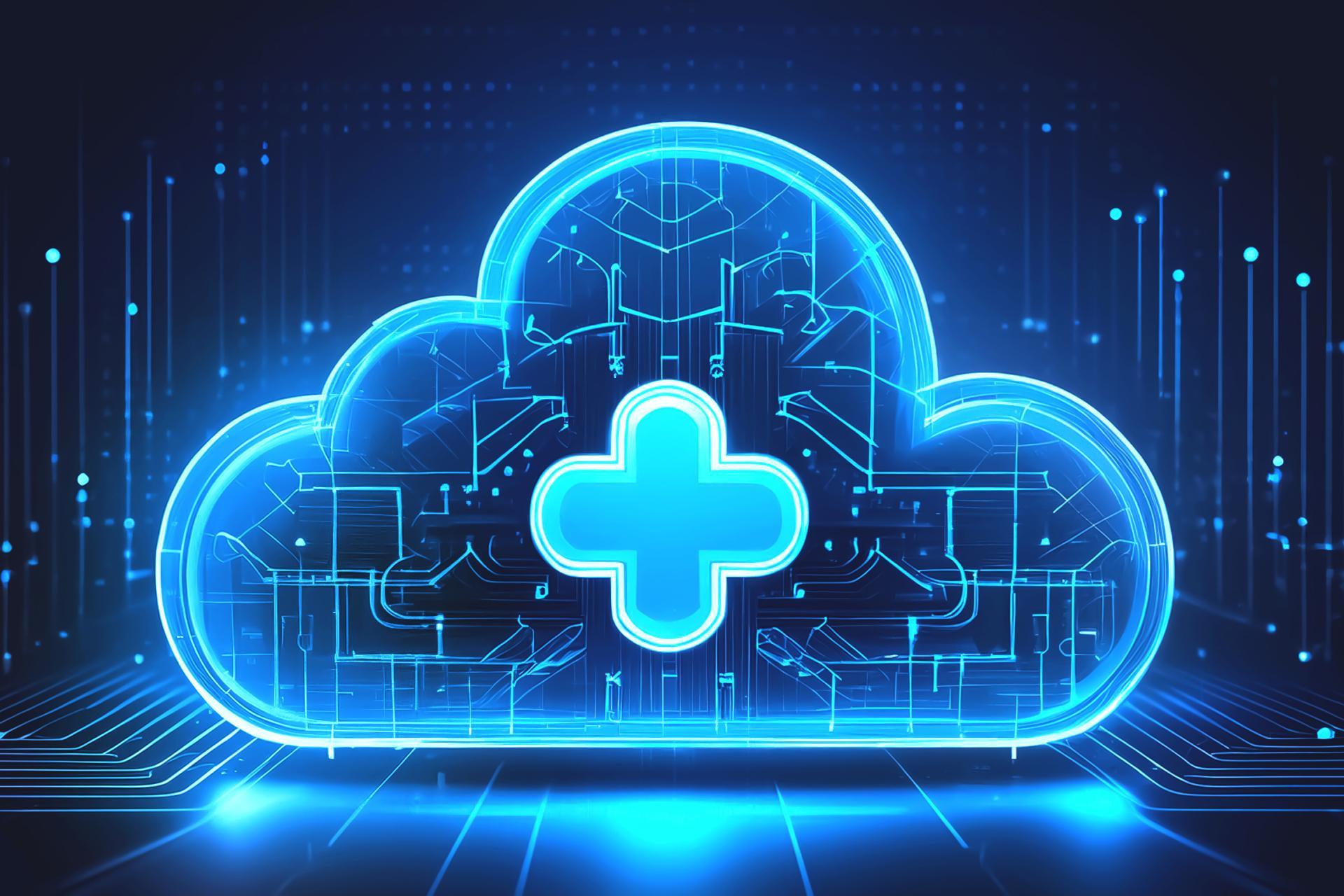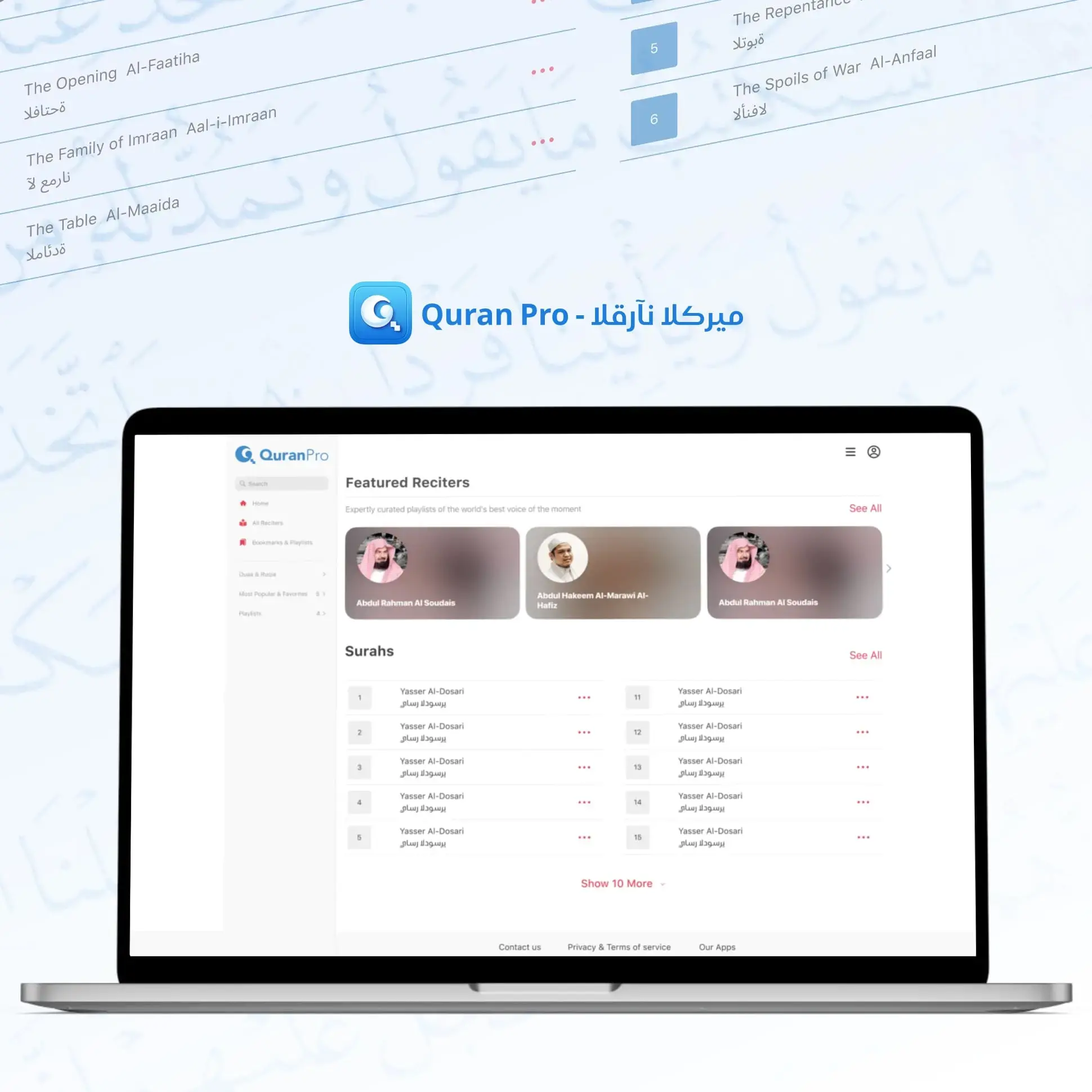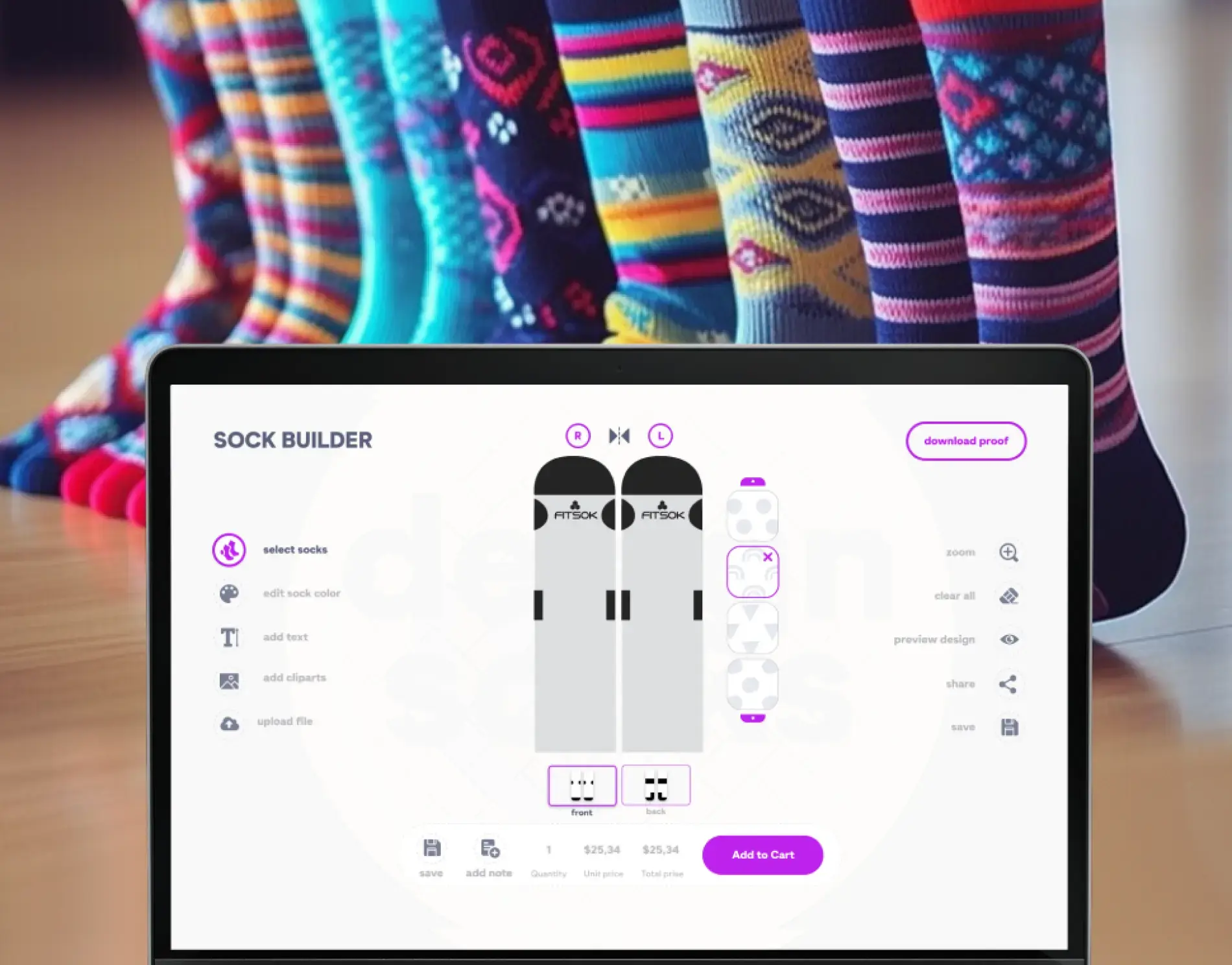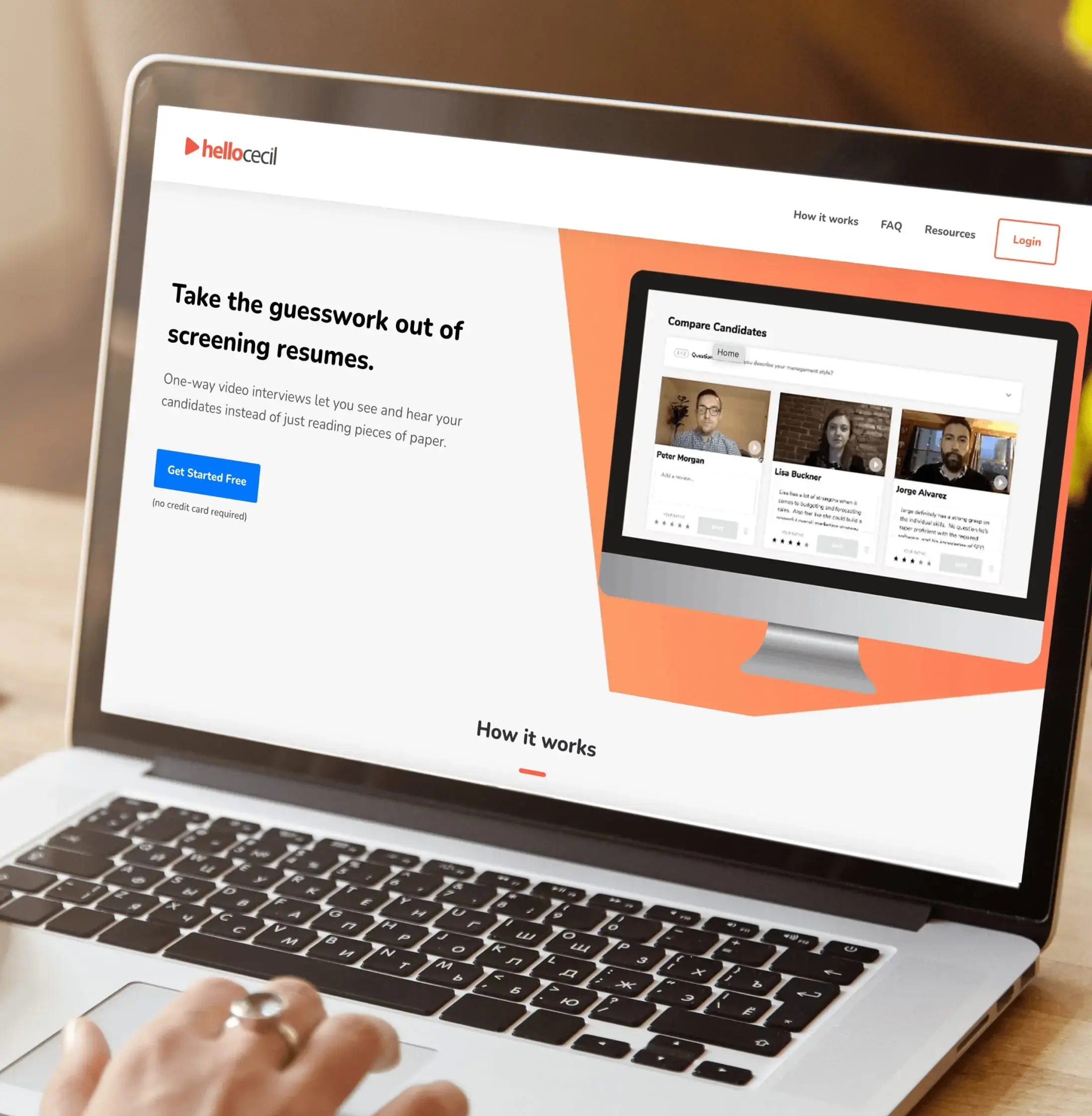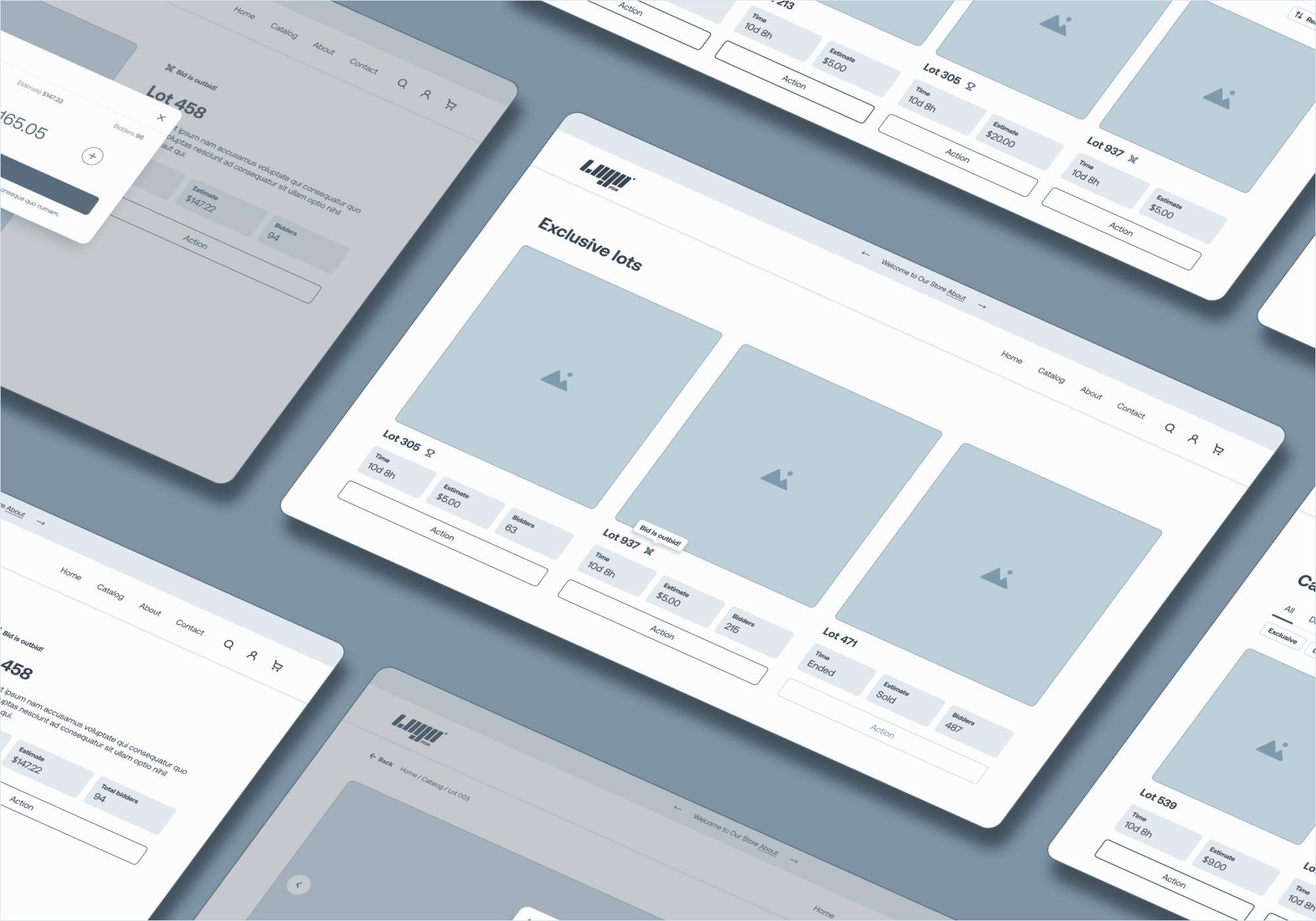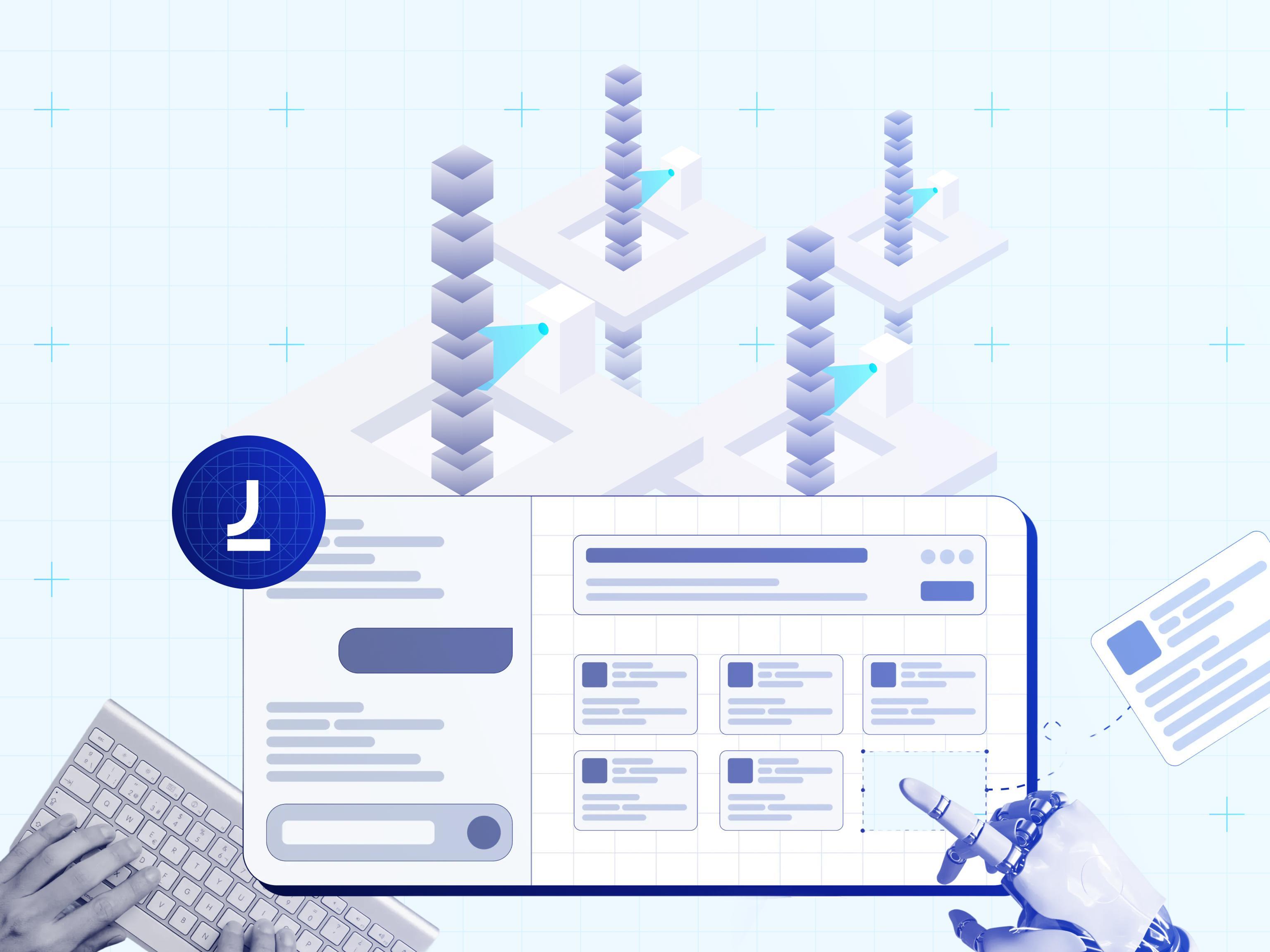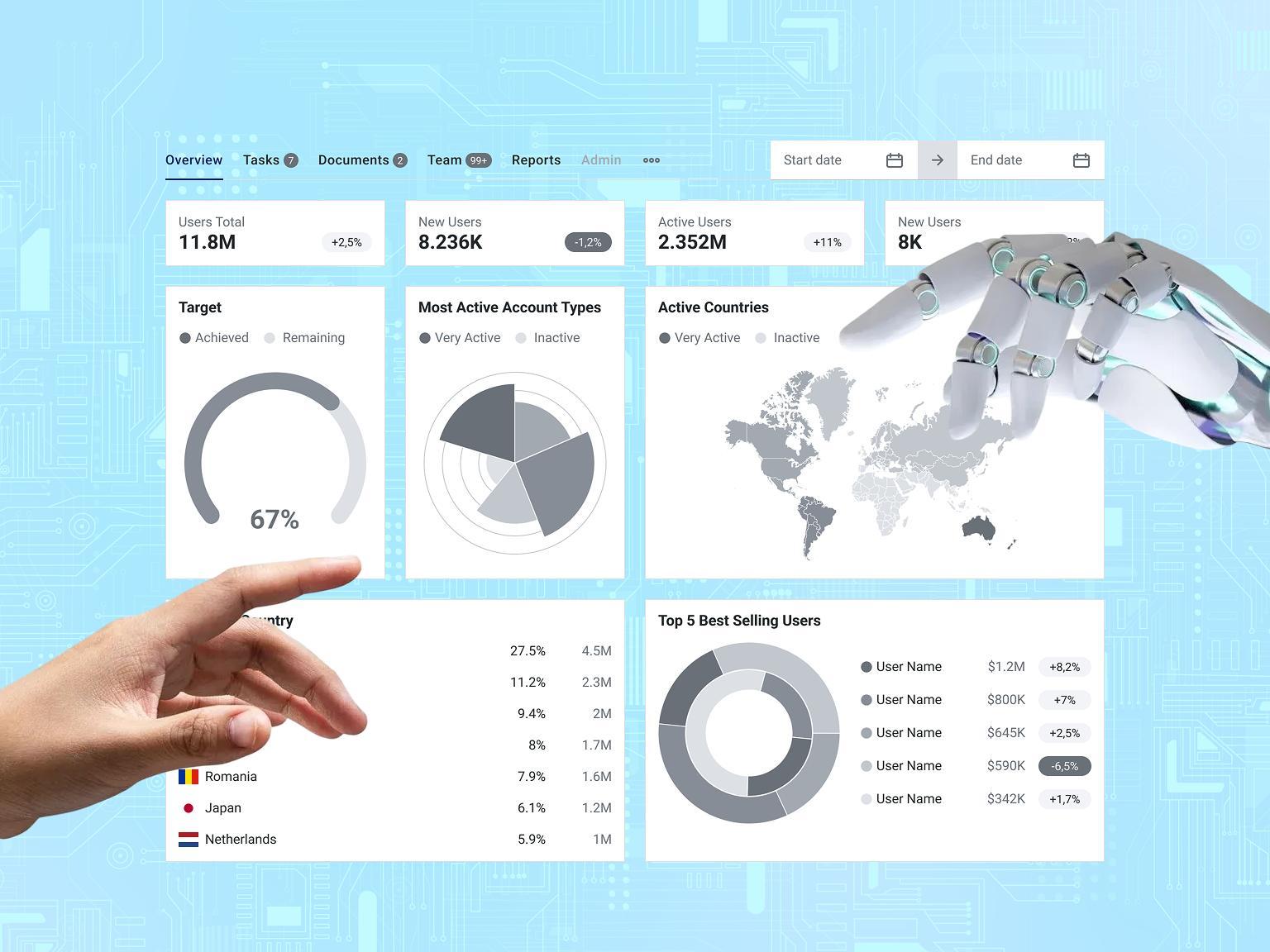Cloud technology is nothing new today, as its scalability and reliability are renowned across industries. Despite that familiarity, cloud computing in healthcare still has the potential to surprise. Things like data security, patient management, and cost reduction are all within reach when you rely on cloud solutions. All you need is to know how to use it correctly.
Before we start exploring the topic of cloud computing in healthcare in more depth, let's take a look at some key statistics:
- The market is projected to grow from USD 54.28 billion in 2024 to USD 197.45 billion by 2032.
- According to a survey conducted by Global Healthcare Exchange (GHX), nearly 70% of U.S. health systems and hospitals are planning to implement cloud-based solutions to supply chain management by 2026.
- The market is projected to grow at a CAGR of 17.5% during 2024-2032.
- Based on service model, Software as a Service (SaaS) is expected to lead the market (51.2%).
- Amazon Web Services, Inc., Microsoft, IBM Corporation, Siemens Healthcare Private Limited, CareCloud, Inc., and Cleardata are the top players in the market.
- North America is expected to hold the highest market share: USD 18.87 billion.
In this article, JetBase will share all the essentials about using cloud computing for medical purposes. We’ll cover the challenges the cloud can address and the new ideas it brings. Our guide will show you examples of how healthcare cloud computing helps patients and doctors. Finally, you will see precisely how to use the cloud for your benefit.
What is Cloud Computing in Healthcare?
Cloud computing in healthcare is using cloud platforms and cloud-based solutions for any medical purpose (for example, in a medical institution). This massive industry, worth $39.4 bln in 2022, covers everything from data processing and storage to telehealth apps to AI integration in hospitals. Cloud computing in the healthcare industry provides the extra processing power needed to modernize medicine.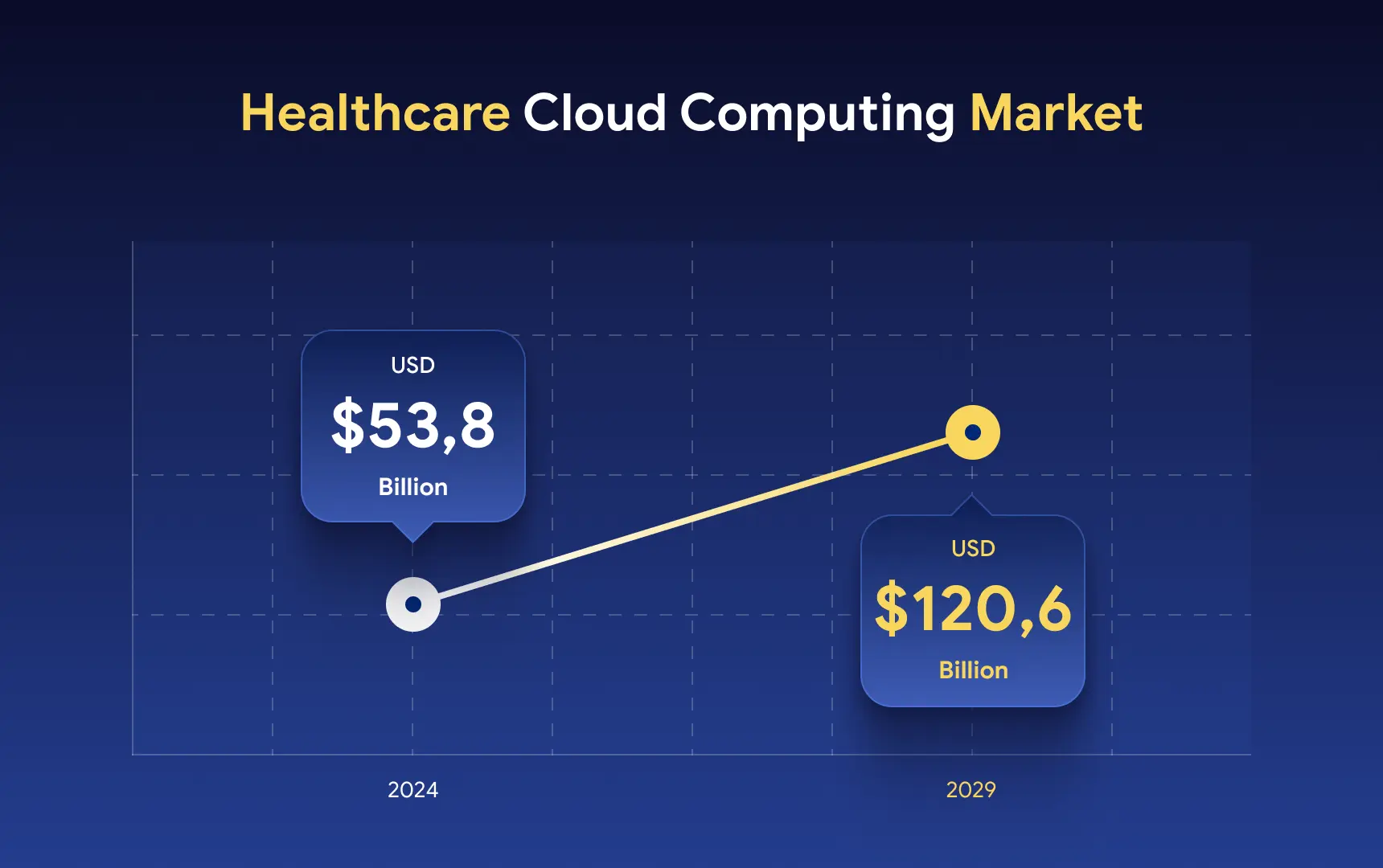
Cloud-based analytics assists with processing patients with more speed and precision. Similarly, the same cloud solution may keep patient data secure yet easily accessible to doctors. It’s a multi-faceted tool that hones a doctor’s skills and lets them accomplish more. Now, let’s zoom in and talk about these advantages in depth.
Benefits of Cloud Computing in Healthcare
The complete list of positives from cloud computing in medicine would take ages to explore. We will, however, cover the core ones that show off the versatility of cloud solutions. This way, you will know what cloud computing brings to the table and how it can come in handy. And there’s plenty to consider as cloud solutions stay trending in 2024.
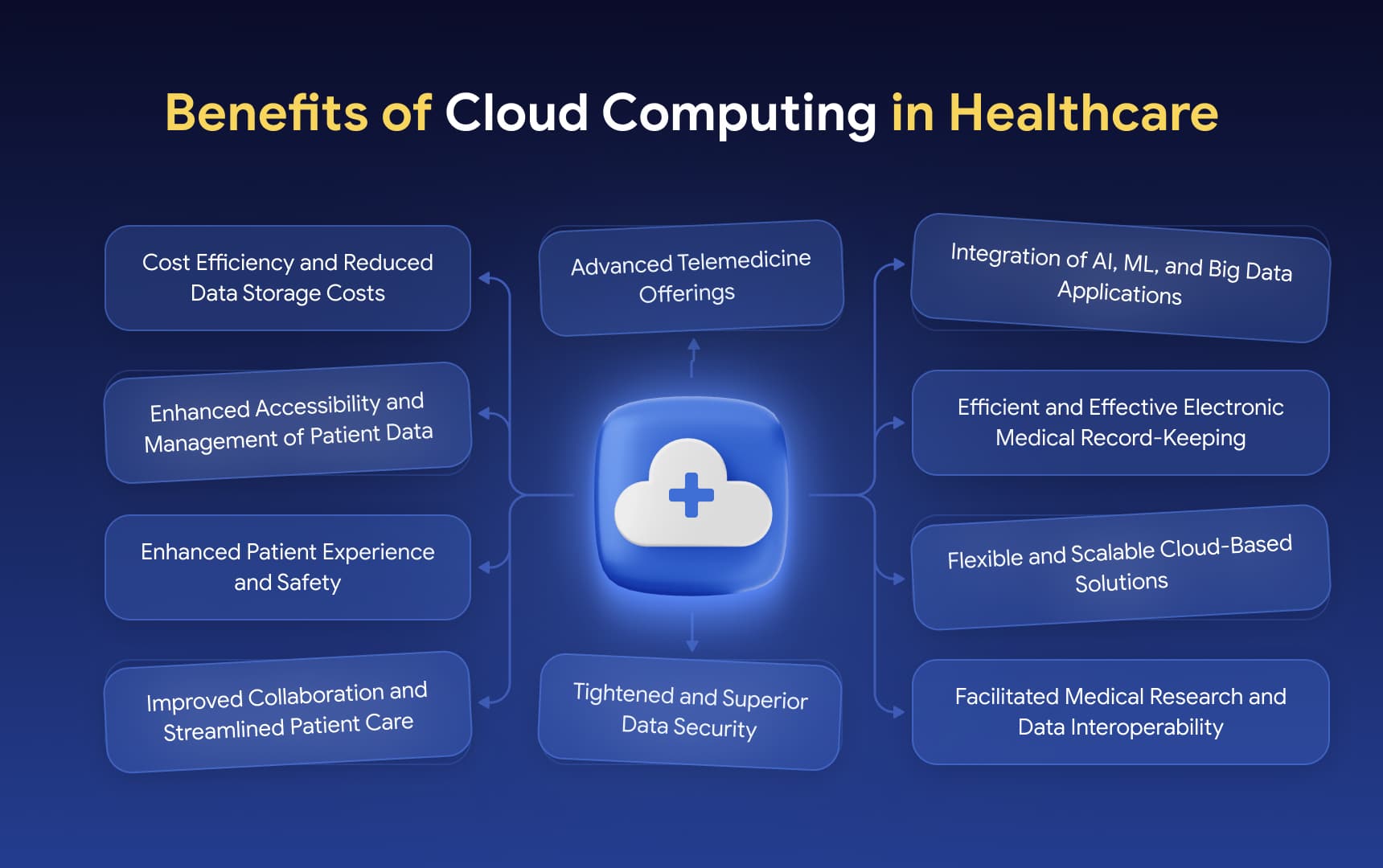
Cost Efficiency and Reduced Data Storage Costs
One of the most straightforward yet relevant benefits of medical cloud computing is that it saves money. For one, it eliminates the need to buy and manage servers, which often becomes a substantial expense over time. Moreover, processing a patient with cloud capabilities is cheaper, meaning your cost-per-patient trends are down when you migrate to a cloud architecture.
Ultimately, the cost of keeping your data hosted on a cloud platform is a fraction of what you’d spend on having your own data center. It eliminates the price of the equipment and the expense of paying server staff.
Enhanced Accessibility and Management of Patient Data
One crucial aspect of cloud computing and healthcare working together is how streamlined they make patient care. Any doctor with the proper access level can see years of a patient’s medical history within seconds of meeting them. Moreover, cloud computing lets them analyze that data almost instantly.
As a result, doctors can skip a lot of the bureaucratic busywork to focus on providing high-quality care. The patient finally comes first in their mind while things like filling out forms stop being such a concern and a time-sink.
Tightened and Superior Data Security
While there are some concerns about the safety of cloud computing in the healthcare industry, many of them boil down to confidentiality. Accessibility of information may seem synonymous with the lack of confidentiality. But in fact, it’s quite the opposite. With cloud solutions, institutions decide precisely who can see any given data.
This tiered access and end-to-end encryption guarantee that doctors will only ever see patient data. However, thanks to cloud computing in healthcare industry, a patient who changes hospitals or chooses a different doctor can provide access to their medical history hassle-free. What’s great about cloud computing is how diverse security measures can be, allowing hospitals to safeguard data correctly.
Improved Collaboration and Streamlined Patient Care
Cloud technology in healthcare enables multiple doctors, even ones in entirely separate institutions, to work together seamlessly. They can send data back and forth, securely share new information, and share specific findings between departments.
That means a patient can, for example, have a CT scan, and the results will be available to their doctor almost instantly. Distance and working hours are no longer critical, as the data is in the cloud environment and remains accessible regardless of external conditions.
Enhanced Patient Experience and Safety
One of the core benefits of cloud computing in healthcare is how it improves a patient’s journey through a healthcare institution. Patients get registered and processed faster, see the doctor with a much lower wait time, and receive a precise diagnosis quicker than ever. But beyond just convenience, their data is also secure, all thanks to cloud computing.
It’s also worth mentioning that cloud computing lets doctors be more attuned to a specific patient’s needs. It frees them from extra tasks and gives more profound insight into a patient’s history. This way, cloud computing in healthcare allows medical staff to hone in on what ails the patient.
After all, the most significant illnesses have fewer side effects and are just as nasty. Doctors address those effects and alleviate pain and suffering with more time and understanding of the patient.
Integration of AI, ML, and Big Data Applications
Modern technology is essential to cloud computing in healthcare, as it enables a higher-level understanding of diseases and how they affect the human body. Thanks to cloud computing, medical staff integrate machine learning (ML) and artificial intelligence (AI) into their workflow. Hospitals can use custom apps angled at their specialization to utilize AI processing.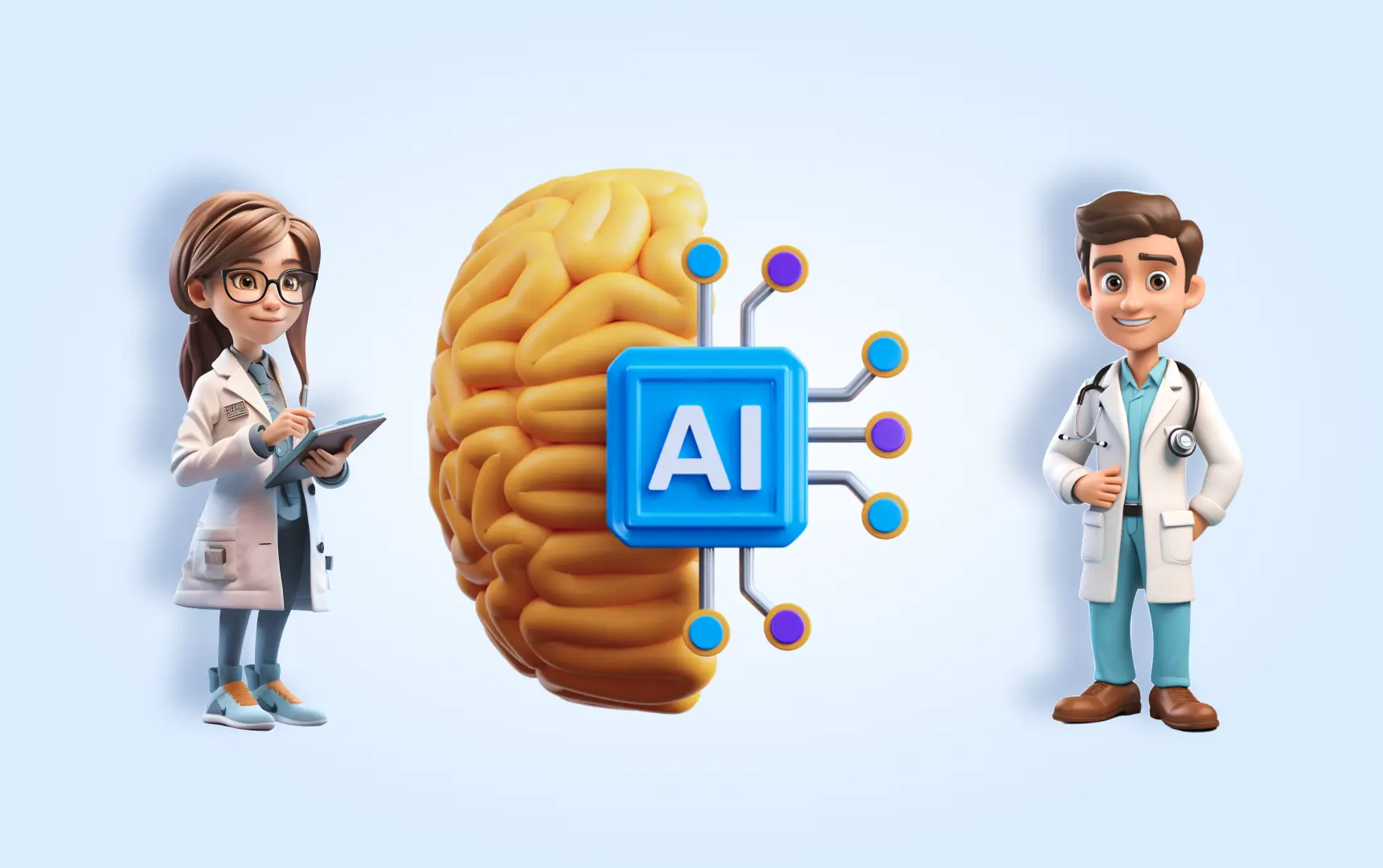
With these, doctors quickly visualize plentiful data and spot patterns. Sometimes, it may simplify their work, while in other cases, it leads to pinpointing and diagnosing an elusive condition. Connecting a hospital’s data-rich systems to applications specifically made to process them helps facilitate research, improving future patients’ lives.
Advanced Telemedicine Offerings
Telehealth is on the rise, as evidenced by 37% of US-based adults using it. Healthcare cloud computing allows such solutions to support more users at once. Plus, they deliver higher-quality video and audio, improving doctors' ability to help patients. The underlying reliability of cloud infrastructure also keeps the services readily available, letting more patients get their care.
Efficient and Effective Electronic Medical Record-Keeping
With EMR systems based on cloud computing in healthcare, hospitals effortlessly store and manage data for millions of patients. They update the data in no time, reflecting changes in a patient’s state and recent procedures. Digitizing this work also means a much lower risk of error or lost records.
Flexible and Scalable Cloud-Based Solutions
One of the most compelling benefits of cloud computing in healthcare is the amount of concurrent activity it can support. Hundreds of doctors process thousands of patients while even more people are on calls or analyzing data. There are no slowdowns or crashes, which could spell big trouble for a healthcare institution.
Facilitated Medical Research and Data Interoperability
Thanks to AI-powered tools, doctors can process much more data simultaneously, speeding up their research. Cloud computing in healthcare also lets different institutions unify their data standards and create much easier ways to share information and research progress. Establishing both a way to share data and specific standards for processing this information makes it possible to achieve progress in vital medical research.
Types of Cloud Computing in Healthcare
Cloud computing in healthcare can be categorized by deployment models and distribution models, each offering unique benefits tailored to specific organizational needs. Let’s dive deeper into these types.
By Deployment Models
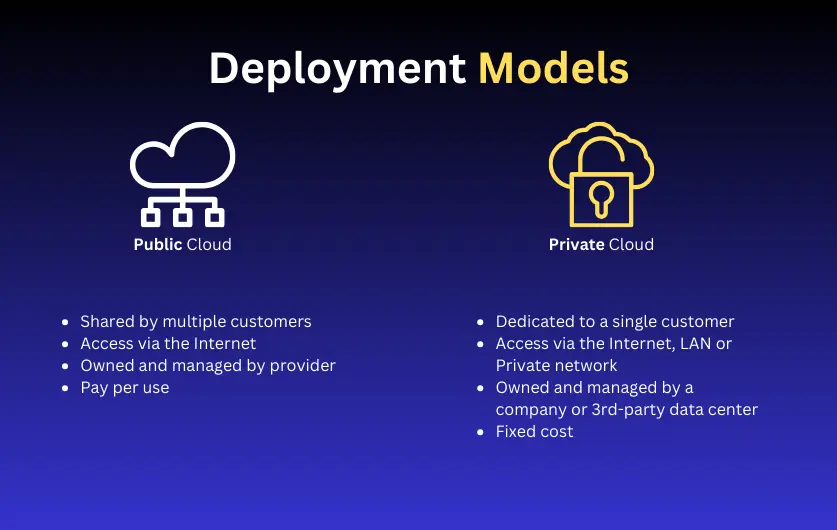
Public Cloud: The public cloud is ideal for startups and small organizations in the healthcare industry. It is scalable but controlled by third parties. It is most suitable for non-sensitive applications such as patient educational platforms or telemedicine applications.
Private Cloud: A better solution for health system organizations that process highly private data of various patients. There is full control of data and the infrastructure which is the major reason why private clouds will suit hospitals and institutions of research.
Hybrid Cloud: Rather than get totally invested in the public cloud, or extend all their private cloud computing to conclusion, healthcare providers can get the best of both by implementing hybrid clouds whereby their most sensitive data is stored in the private cloud while less critical data is in the public cloud. This flexibility proves compliance without an issue with efficiency.
By Distribution Models
Infrastructure as a Service (IaaS): Offers data storage and networking infrastructure and their usage is virtualized. This model is perfect for any organization that wants to implement change in scalability without huge buying of hardware.
Platform as a Service (PaaS): Provides a technology foundation for the development of and a system for the deployment of applications; precious for healthcare companies that want to deliver innovation quickly with the help of, for instance, custom-built health monitoring programs.
Software as a Service (SaaS): Used by EHR systems and telemedicine services, SaaS provides fully capable applications that can be accessed through the Internet. It also does not require the service provider to own any equipment, which is the reason why many healthcare organizations favor it.
Find out what that means for your systems, data, and scalability.
6 Examples of Cloud Computing in Healthcare
Considering all these benefits, it’s fair to expect that cloud computing in healthcare has varied use cases. In this section, we’ll highlight a few major ones that showcase the unrivaled efficiency of cloud solutions.
Cloud Computing for Clinical Development and Research
Pfizer

This company doesn’t need much introduction. However, it may surprise you that AWS played a considerable role in getting us that famous COVID-19 vaccine. Pfizer started working with the platform to speed up their research and development. They went as far as creating custom solutions for that purpose, guaranteeing that cloud computing in healthcare will keep helping them for years.
Mayo Clinic

Another giant in the medical field, Mayo Clinic, transitioned to a cloud-driven model in 2020. As a result, its services and gargantuan data pool became more accessible. Many institutions use this data for research, showing a knock-on effect from one company’s cloud adoption.
Cloud Computing for Electronic Health Record Management (EHRM)
Cloud solutions aren’t always about reinventing the world. Sometimes, their purpose is to simplify work and streamline tasks. Here is how.
TigerConnect

Focused entirely on making hospital teams more efficient, TigerConnect is an excellent example of picking a direction and perfecting it. Their use of cloud computing in healthcare saves hundreds of thousands of dollars, gives patient processing a 50% speed boost, and reduces response time for vital teams. All of that is thanks to better record management and information processing.
Veradigm

Another popular service, Veradigm, serves over 300,000 healthcare businesses in the US alone. Its scalable, data-driven solutions make it possible to store and analyze health records at a fraction of the traditional cost. Like many cloud-based offerings, Veradigm also effectively uses AI, with software that completely automates many management tasks.
Cloud Computing for Patient Experience
We’d be remiss to ignore the use of cloud computing in healthcare for patients’ benefit. Here is a duo of platforms doing great work in that area.
Medable

Medable’s robust platform offers patients an entirely virtual medical experience with a waiting room and easy scheduling. It also lets doctors gather and clean data, making the research and diagnosing processes more straightforward. For patients, the platform also offers a flexible reminder setup and a direct line to a healthcare professional if needed.
CareCloud

This platform lets healthcare institutions and businesses efficiently manage their income, patient scheduling, and analytics. It also offers a simple mobile app for patients to contact their doctors. Couple that with CareCloud’s new CirrusAI assistant, and you end up with a powerful suite that heightens patient experiences across the board.
Risks of Using Cloud Computing in Healthcare
It’s not all smooth sailing all the time, of course. There are always challenges in an industry as complex and vital as the medical one. So, let’s quickly go over the risks of cloud computing in healthcare to understand what you need to avoid.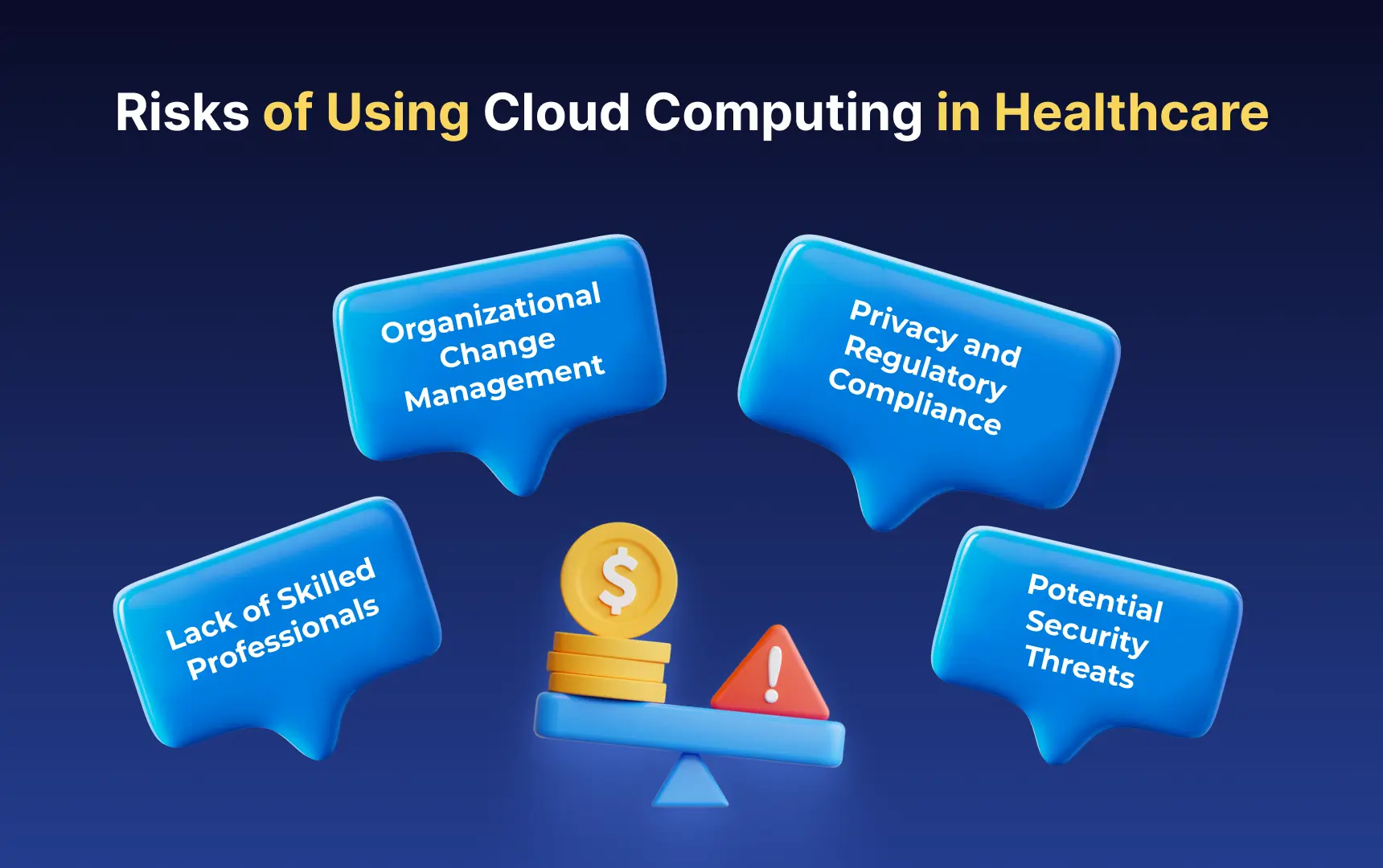
Lack of Skilled Professionals
Building scalable, dependent cloud solutions is already a demanding task. However, cloud computing for healthcare is, perhaps, the trickiest version of that work. Often, it’s easier to recruit a company willing to outsource their skills than try and find a whole team to hire for your cloud needs.
Potential Security Threats
It’s common to have concerns about patient and hospital data security in a cloud environment. That mostly depends on how skilled your cloud engineers will be. An expert can establish proper tiered access and encryption for all aspects of the system. With that in mind, finding vetted specialists is critical to avoid potential security pitfalls.
Organizational Change Management
Adapting a sprawling hospital system to a new environment with cloud computing for healthcare is also challenging. You can mitigate it by providing proper education about the new solutions and ways to use them effectively. It’s also crucial to establish point people who will monitor others’ progress with cloud computing and ensure they use it to its fullest potential.
Privacy and Regulatory Compliance
This point is similar to security concerns, as regulations like HIPAA concern patient data and how safely one stores and processes it. It helps to have a proper legal consultation beforehand but, realistically, a skilled team will build in all the right measures for full compliance. The catch is ensuring your team is up on the latest regulatory changes in the region you service.
Future of Cloud Technology in Healthcare
The future of cloud computing in healthcare is closely tied to the growing demand for scalable, data-driven, and interoperable systems. As healthcare organizations continue to adopt AI, connected medical devices, and advanced analytics, cloud platforms provide the infrastructure needed to process large volumes of data securely and efficiently.
Cloud-based environments enable healthcare providers to move beyond static data storage toward real-time insights, supporting use cases such as predictive analytics, personalized treatment planning, and large-scale genomic research. These capabilities allow organizations to innovate faster while maintaining compliance and operational stability.
Key trends shaping the future include:
- Enhanced Interoperability: сloud platforms simplify interoperability by centralizing data access and supporting standardized APIs. This allows healthcare systems, third-party applications, and connected devices to exchange information more consistently, improving care coordination and reducing data silos.
- Adoption of AI and Machine Learning: сloud infrastructure enables healthcare providers to run AI and machine learning workloads at scale without maintaining complex on-premise environments. By leveraging cloud-based AI services, organizations can analyze large datasets to identify risk patterns, support clinical decision-making, and improve diagnostic accuracy.
- Expansion of Telehealth: telehealth platforms continue to rely on cloud technology to support secure video communication, real-time data access, and integration with electronic health records. Cloud-based architectures ensure telehealth services can scale with patient demand while keeping clinical data accessible across care teams.
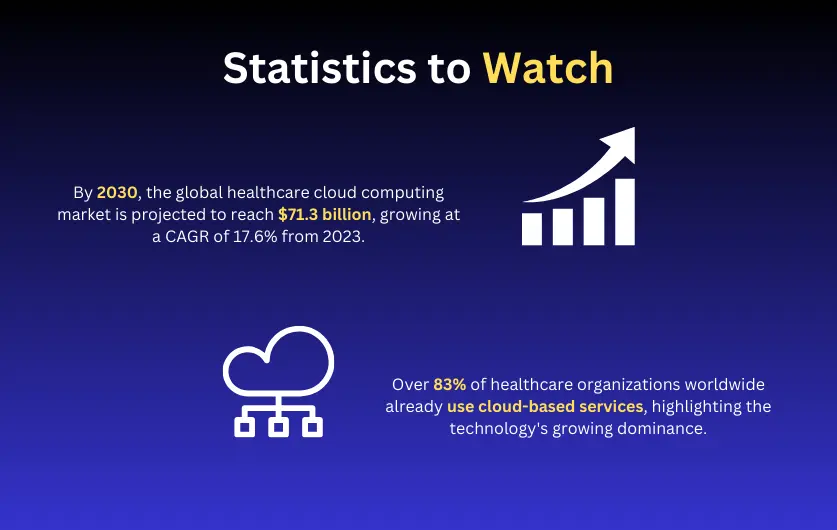
These advancements signal a transformative era where healthcare delivery becomes more efficient, accessible, and patient-centric.
Need Help with Cloud Computing Services?
From improving a patient’s experience in the system to facilitating research, cloud computing for healthcare industry has become a must-have these days. However, developing a solution based on cloud technology in healthcare from scratch isn’t easy. It’s crucial to pick the right stack, optimize the solutions, and have maintenance staff available.
Therefore, it makes sense to turn to a team of professionals like JetBase. Our decade in the market has taught us everything there is to know about cloud solutions and how to deliver them.
If you want to enable cloud power for your medical solutions, get in touch today.

